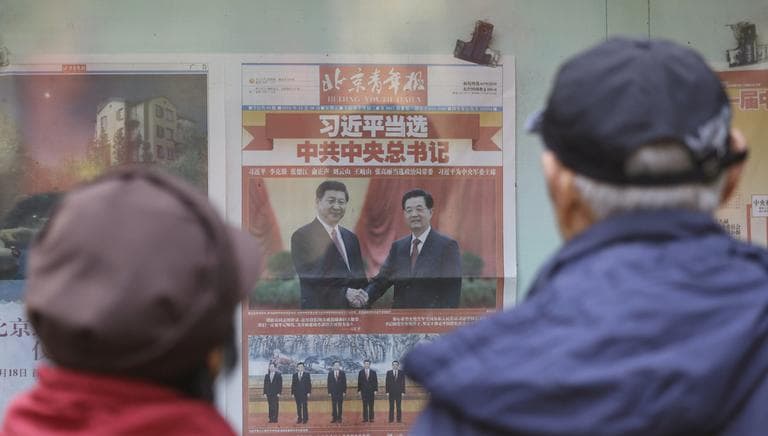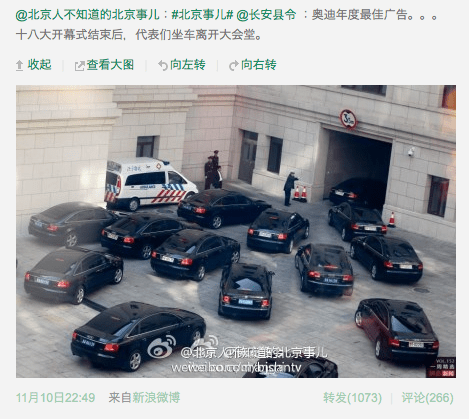Advertisement
Leadership Changes In China
ResumeA once-in-a-decade leadership change is underway in China. We’ll look at what it may mean for China and the world.

Americans went to the polls this month in their millions and chose a new leader for four years. In China, the world’s biggest country, a couple dozen Communist Party leaders sat down last week and chose a new leader for ten years. Xi Jin Ping is the new man on top.
A “princeling” as they call the offspring of big party players. With a new team around him at the top. With lots of power. China’s succession process is a black box. Opaque. But now it’s done. What does it mean for China, the U.S., the world?
This hour, On Point: the changing of the guard in China and what it means.
-Tom Ashbrook
Guests
Hans Nichols, White House correspondent for Bloomberg News.
Susan Shirk, chair of the 21st Century China Program and professor of China and Pacific Relations at the University of California- San Diego. From 1997-2000, she served as Deputy Assistant Secretary of State in the Bureau of East Asia and Pacific Affairs, with responsibility for China, Taiwan, Hong Kong and Mongolia.
Damien Ma, an analyst in the Asia practice at Eurasia Group. He also writes about China for the Atlantic.
From Tom's Reading List
Foreign Policy "Chea Munyrith, head of the academy's Confucius Institute, one of more than 350 such Chinese government-funded outposts of language and culture around the world, pointed out prominent students in the class. "There, we have a high-ranking member of the military," he said, gesturing toward a man wearing a black tunic and gold-rimmed glasses, standard garb for Cambodia's ruling elite. "We also have a secretary of state of the Council of Ministers," he added, the equivalent of Cambodia's cabinet."
Foreign Affairs "Mao Zedong believed that revolutionary fervor could overcome technological backwardness. But when more pragmatic leaders took power in Beijing, they found that China lagged so far behind the West that the country risked permanent second-class status."
New York Times "The blunt remarks by Mr. Xi were made Saturday at a meeting of the 25-person Politburo, which announced a turnover of 15 members last week during the change in leadership at the close of the 18th Party Congress, the state news media reported on Monday."
Video: Obama in Rangoon
Photo

This program aired on November 20, 2012.
